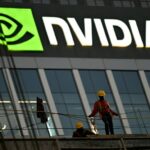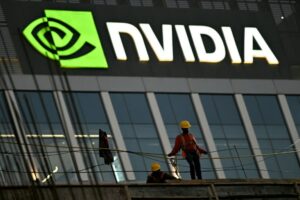Shares of Nvidia are rocketing to new heights, but investors can still get in on the action.
Artificial intelligence (AI) is the biggest bellwether for the technology sector right now. Moreover, gains in megacap technology giants such as Nvidia, Microsoft, Amazon, and more are helping fuel the S&P 500 and Nasdaq Composite to record highs.
With shares up nearly 180% so far in 2024, Nvidia recently became the largest company in the world by market cap. Some investors may think it’s too late to hop on the Nvidia train. Alternatively, as shares of the semiconductor giant continue to rocket on a seemingly daily basis, investors may be looking for alternative options in the AI chip realm.
The VanEck Semiconductor ETF (SMH -1.50%) could just be what you’re looking for. Let’s dig into why this exchange-traded fund (ETF) looks like a great opportunity for long-term investors interested in semiconductor businesses beyond Nvidia.
What do you get with the VanEck Semiconductor ETF?
The VanEck Semiconductor ETF holds stock in 25 semiconductor companies. While Nvidia is the fund’s largest position with a 25.7% weighting, other prominent holdings include Taiwan Semiconductor, Broadcom, ASML Holdings, Qualcomm, Intel, and Advanced Micro Devices.
One of the reasons I like the VanEck Semiconductor ETF is because it provides investors with exposure to many pockets of the AI chip market. For example, while Intel and AMD are competing directly with Nvidia in the graphics processing unit (GPU) space, positions such as Qualcomm and Broadcom give investors a passive position in markets related to chip applications in the Internet of Things (IoT), smart home appliances, mobile devices, and network infrastructure.
Moreover, Qualcomm in particular is an interesting opportunity considering the company’s ongoing turnaround efforts. Given expectations are fairly low, I see Qualcomm as a potentially lucrative opportunity should the company continue executing on its growth initiatives.
Furthermore, one of my favorite and most respected smart money hedge fund managers, Brad Gerstner, just added Broadcom to his portfolio. I think this move adds some credibility to Broadcom specifically as well as the company’s role in the AI revolution.

Image source: Getty Images.
How has the fund performed?
The table breaks down the average annual total returns of the VanEck Semiconductor ETF across various time periods.
| 1 Year | 3 Years | 5 Years | 10 Years |
|---|---|---|---|
| 67.7% | 25.4% | 38.6% | 27.8% |
Data source: VanEck Semiconductor ETF Fact Sheet.
As a word of caution, I wouldn’t suggest getting too enamored by the one-year return. Remember, the S&P 500 and Nasdaq are each near record levels, and technology companies have a lot to do with that. As such, Nvidia and many of its cohorts have enjoyed outsize buying activity over the last year.
However, both the five-year and 10-year returns may catch your eye. Not only are these impressive returns, but they trounce the long-run average return of the S&P 500, which sits around 6.5% when accounting for inflation.
In a way, this makes sense. The S&P 500 is a much broader basket of companies than the VanEck Semiconductor ETF, which only concentrates on a relatively small cohort. Moreover, the S&P 500 is also exposed to many more end markets compared to the VanEck Semiconductor ETF.
Should you buy the VanEck Semiconductor ETF right now?
On one side of the equation, the VanEck Semiconductor ETF boasts market-beating returns across a long-term horizon and provides investors with a high degree of diversification among semiconductor businesses.
However, it’s important to keep in mind that the semiconductor space is highly cyclical. This means demand trends can ebb and flow dramatically, which will impact these companies and the sentiment around them.
With that said, the fund’s expense ratio of 0.35% is fairly reasonable. I think investors who are looking for broad exposure to the chip space and AI in general should consider the VanEck Semiconductor ETF. It’s a good option for investors who are looking for opportunities outside of the most obvious plays, all at a reasonable price.
John Mackey, former CEO of Whole Foods Market, an Amazon subsidiary, is a member of The Motley Fool’s board of directors. Adam Spatacco has positions in Amazon, Microsoft, and Nvidia. The Motley Fool has positions in and recommends ASML, Advanced Micro Devices, Amazon, Microsoft, Nvidia, Qualcomm, and Taiwan Semiconductor Manufacturing. The Motley Fool recommends Broadcom and Intel and recommends the following options: long January 2025 $45 calls on Intel, long January 2026 $395 calls on Microsoft, short August 2024 $35 calls on Intel, and short January 2026 $405 calls on Microsoft. The Motley Fool has a disclosure policy.











